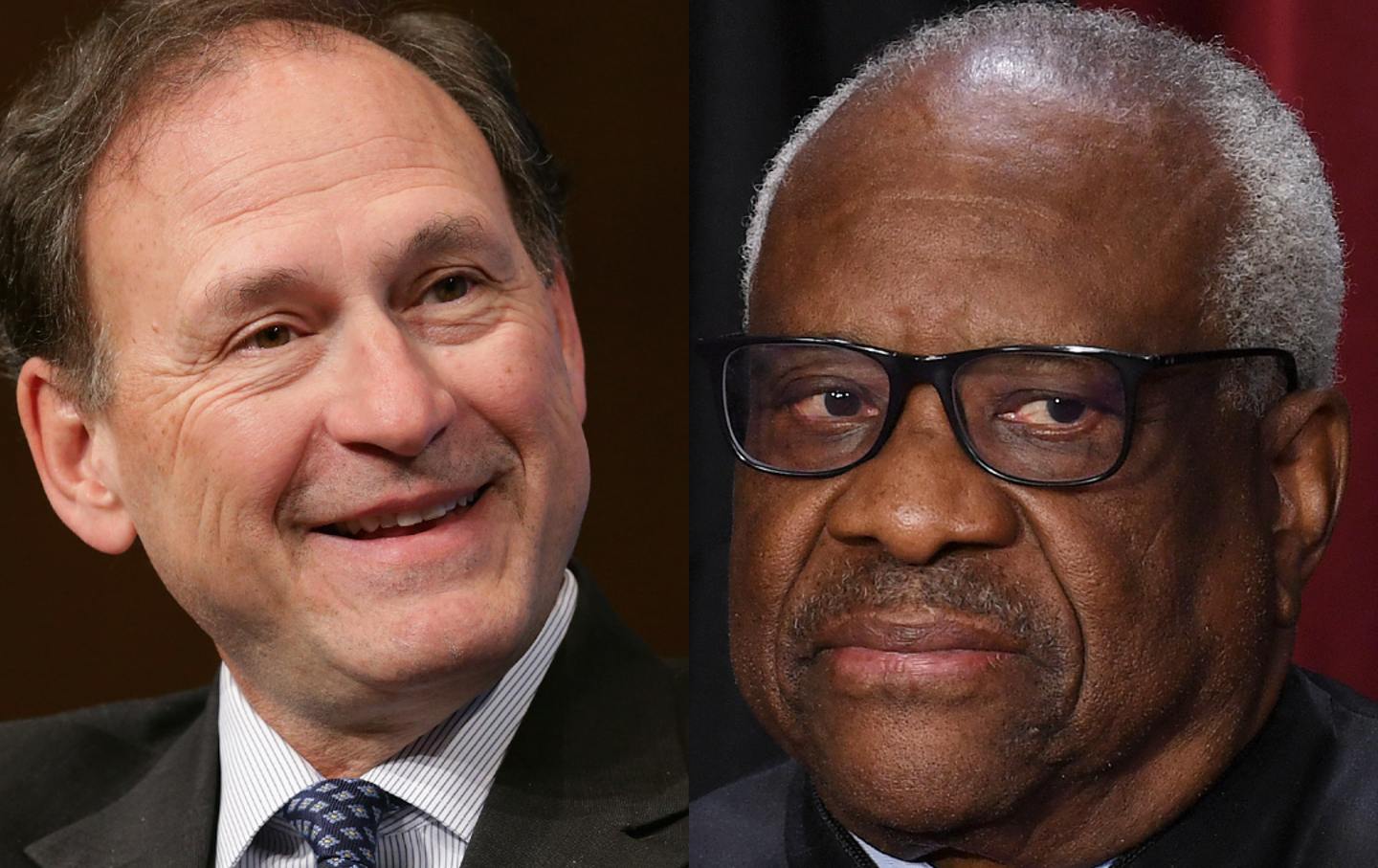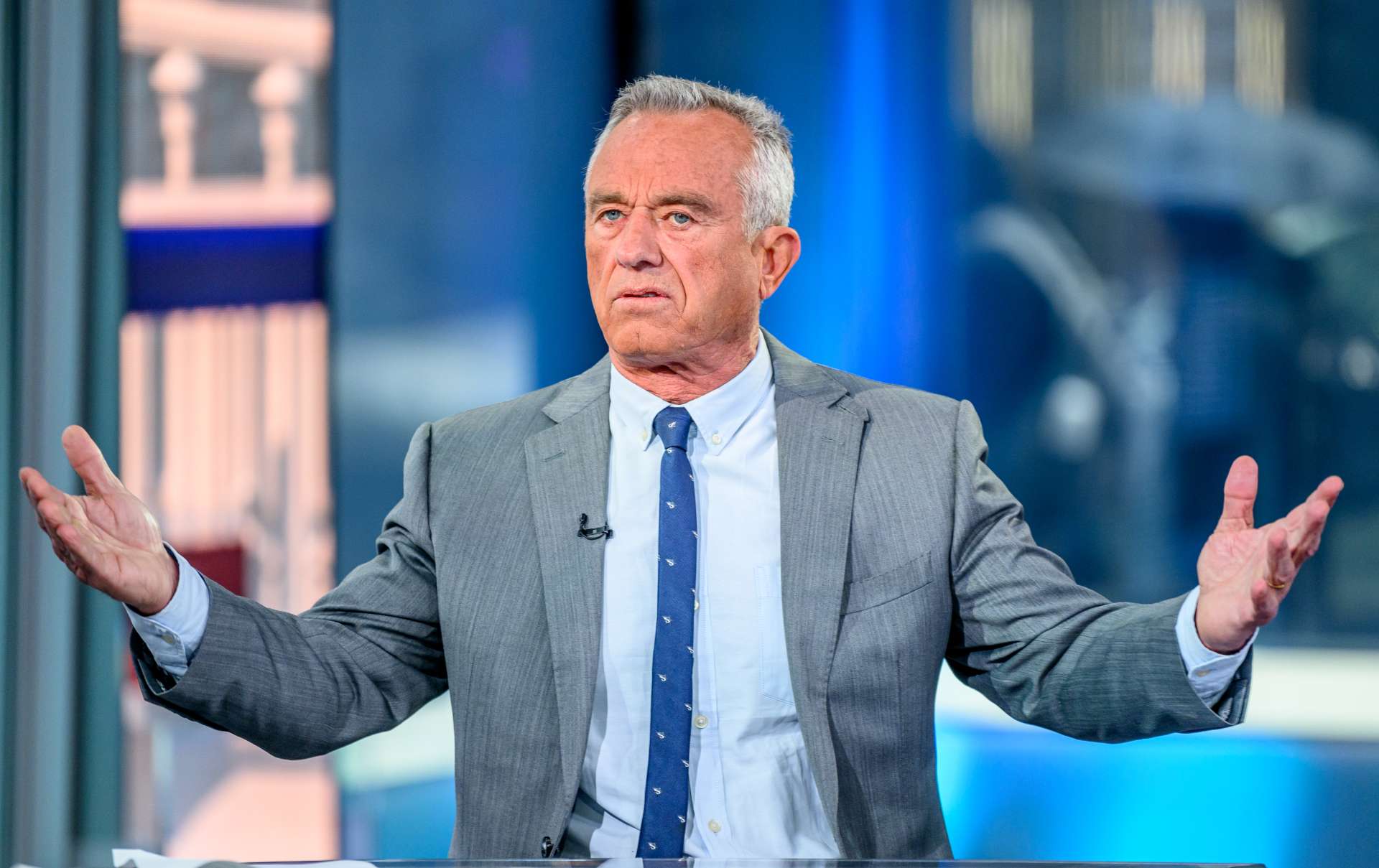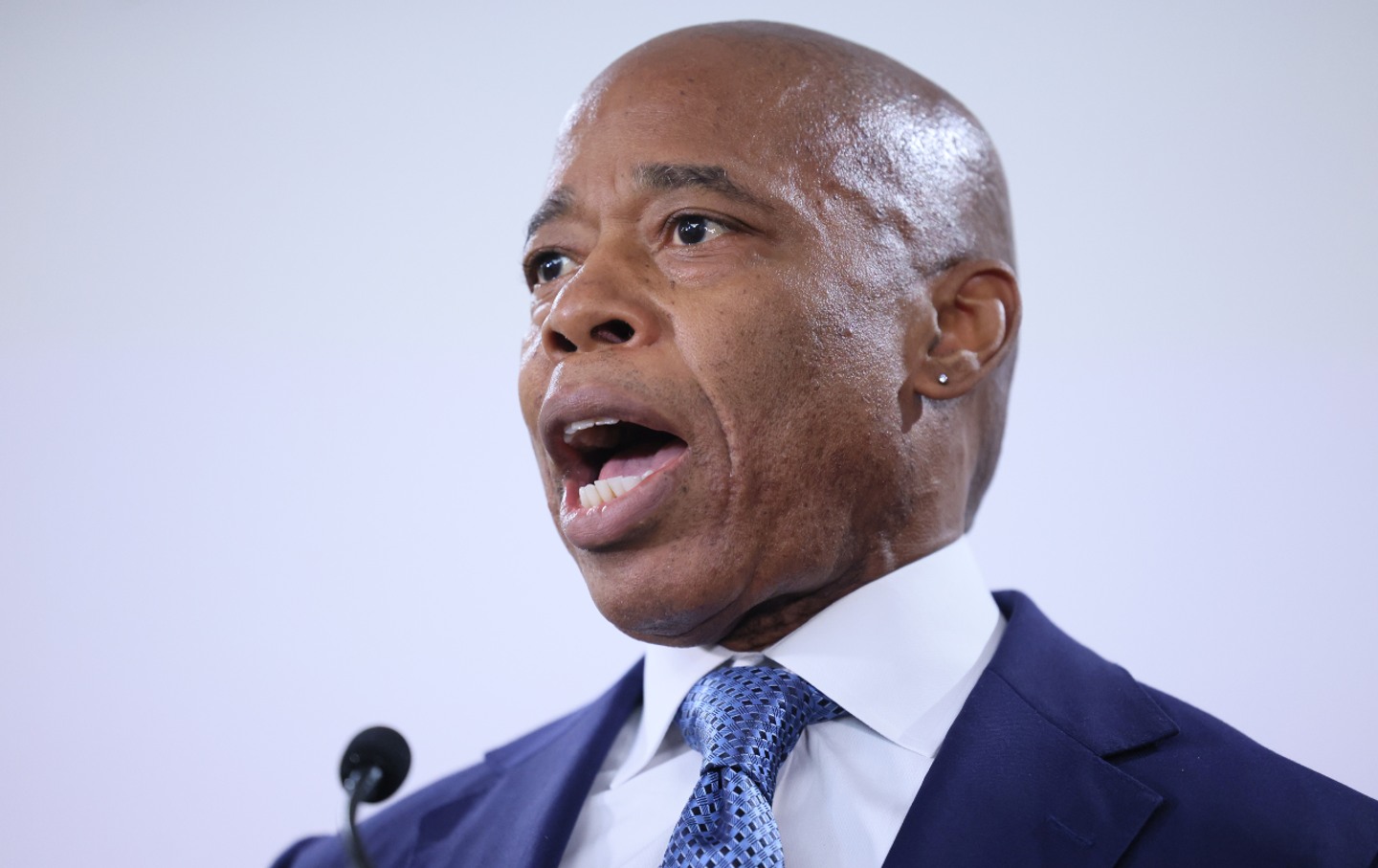
Unlike Joe Biden, the former president benefits from international turmoil.
Wall Street Journal reporter Evan Gershkovich has been imprisoned in Russia since March 29, 2023, when he was arrested and charged with espionage. It’s widely believed that Vladimir Putin’s government is holding Gershkovich as potential barter for a prisoner exchange with the United States government, although no deal has yet been made. On Thursday, Donald Trump weighed in with his usual spiel arguing that he alone, the great dealmaker, could free Gershkovich. On his platform at Truth Social, Trump claimed:
Evan Gershkovich, the Reporter from The Wall Street Journal, who is being held by Russia, will be released almost immediately after the Election, but definitely before I assume Office. He will be HOME, SAFE, AND WITH HIS FAMILY. Vladimir Putin, President of Russia, will do that for me, but not for anyone else, and WE WILL BE PAYING NOTHING!
Boastful posts are familiar fare from Trump, and in keeping with his campaign message that, in contrast with the supposedly hapless and weak Joe Biden, he is a tough guy who is respected by foreign strongmen. But Trump’s braggadocio raises a natural question: Why doesn’t he get his Russian pal to release Gershkovitch now? Responding to Trump, former Barack Obama adviser Tommy Vietor raised this commonsense objection: “How about using your leverage with Putin to get Gershkovich out immediately or else this sounds like Trump and Putin are jointly holding him hostage.” In promising a release of Gershovich only after the election, Trump comes off as cruel rather than strong.
If read carefully, Trump’s statement isn’t even a promise of working to get Gershkovich released but rather a signal to Putin to not negotiate with the Biden White House and hold on to the journalist until Trump is elected. In other words, this is a classic Trump attempt to align with Putin against the Democrats. It’s another iteration of Trump’s infamous 2016 statement:
“Russia, if you’re listening—I hope you are able to find the 30,000 emails that are missing. I think you will probably be rewarded mightily by our press. Let’s see if that happens.”
Current Issue

In sabotaging an ongoing negotiation between an American president and a foreign adversary, Trump might be accused of breaking norms—or something more serious. Alas, he is merely following a pattern already pioneered by Ronald Reagan and Richard Nixon.
There has long been speculation that in 1980 Reagan’s campaign created a backchannel with the Iranian regime, requesting that it hold on to the 53 Americans it held hostage and thus hurt the reelection prospects of then-President Jimmy Carter. The October Surprise theory held that the Iranians, who released the hostages only minutes after Reagan was sworn in as president, accepted this request in exchange for unknown favors. It was called the October Surprise because the Reagan campaign was trying to wreck what it saw as the unwanted prospect of a Carter diplomatic triumph before the election.
We now know that the October Surprise theory is almost certainly true, because, as The New York Times reported in March 2023, the Reagan campaign was sending surrogates to the Middle East to give feelers to the Iranians. The New York Times account is only the latest of a long series of reports pointing to the reality of a Reagan campaign backchannel with Iran.
The chief difference between Reagan in 1980 and Trump in 2024 is that Reagan lived in a period when shame still existed, so he acted furtively. Back in that distant era, it was widely understood that the United States had only one president at a time. But in the current age of polarization—with a wide swath of Republicans believing that Trump actually won the 2020 election—the rules have changed. Trump, as his wont, is advertising his October Surprise strategy out in the open, turning subtext into text.
Nor was Reagan the first Republican who stirred up international intrigue in order to embarrass an incumbent Democrat and win the presidency. In 1968, candidate Richard Nixon created his own October Surprise by setting up a backchannel with the South Vietnamese government in order to sabotage the peace talks then going on in Vietnam. Nixon urged the South Vietnamese to hold out until after the election, promising them a better deal than anything Lyndon Johnson or Hubert Humphrey could offer.
Given Trump’s Gershkovich post, and bearing in mind the precedents of Nixon and Reagan, we have to wonder if there are other October Surprises in store. As a former president running for reelection, Trump is in the rare position of being a presidential challenger who has as many close ties to foreign leaders as the incumbent. Nor has Trump been shy about deploying such ties. In Mar-a-Lago, where he presides like a president in exile, Trump has hosted numerous foreign leaders, including Polish President Andrzej Duda and Hungarian Prime Minister Viktor Orbán. Trump’s son-in-law Jared Kushner, who played a major role in his administration overseeing foreign policy, has continued to cultivate financial and personal ties with foreign governments, notably Saudi Arabia.
On Monday, Reuters reported, “Three former U.S. foreign policy officials in Donald Trump’s administration met with Prime Minister Benjamin Netanyahu and other public figures in Israel on Monday, according to a person with direct knowledge of the matter.” The news service described this as “a rare case of Trump allies traveling abroad as part of an organized delegation to meet foreign officials. It took place amid strains between Israel and the Biden administration about Israel’s conduct of the war in Gaza.”
The contacts with Israel are particularly troubling because Joe Biden, although he seems only intermittently aware of this fact, has a set of interests very different from Netanyahu’s.
The Israeli prime minister’s eagerness to shaft Biden has forced even the status quo–loving Thomas Friedman of The New York Times to acknowledge that “Netanyahu has become a radical actor, undermining key U.S. interests and Arab allies, and becoming the gift that keeps on giving for Iran.” Friedman goes on to note that Netanyahu has clearly thrown his lot in with Trump’s reelection, observing that the Israeli prime minister has shown
his gratitude to Biden by having his parliamentary majority give Elise Stefanik, a hack Republican congresswoman with no foreign policy standing whatsoever—and a person groveling to become Donald Trump’s vice president—the extraordinary honor of giving an address Sunday in the Knesset, where she slammed the U.S. president and praised Trump.
In terms of both American national interest and his own reelection hopes, it’s in Biden’s best interest to have Israel end the current onslaught in Gaza immediately. Israel’s war on the civilian population of Gaza has badly tarnished America’s global reputation and is also unpopular with a supermajority of Democrats, with 75 percent opposing in a Gallup poll. The more international war dominates the headlines, the more Biden looks as weak as Trump claims. War headlines also prevent Biden from getting the message out on issues where he has public approval, such as abortion, marijuana legalization, and student debt relief.
But it is in Netanyahu’s personal interest to keep the war going, since the end of the war will bring a political reckoning with his own culpability in the military and intelligence failures that lead to the October 7 Hamas attack. Added to this personal interest is the simple fact that Netanyahu, who has long preferred Republican presidents, probably believes that Israel will be given greater leeway if Trump returns to the White House (despite Trump’s personal spite at Netanyahu for being insufficiently servile).
Popular
“swipe left below to view more authors”Swipe →
All of this adds up to a very compelling October Surprise scenario. It’s easy enough to imagine how Netanyahu can ratchet up international tensions and subvert any slim chance of a diplomatic breakthrough: He could continue acting as he has for the last seven months—or even expand the war into Lebanon. With Putin, the prospects for peace are so grim it’s hard to see how they could get worse, which perhaps explains Trump’s eagerness to squash even the slim possibility of a Biden triumph with the release of Gershkovich. Although it is worth noting that Biden is so distrusted on foreign policy that even actions that might normally make Americans rally behind a president, such as a surge of Russian violence in Ukraine, could just have the effect of reinforcing the impression that he is a feckless leader who can’t control the international arena.
The only way to prevent such an October Surprise is to make Trump’s ties to foreign autocrats a campaign issue. That’s easy to do with Putin, but does the Biden campaign have the guts to go public with the fact that Netanyahu is opposing American interests?
Thank you for reading The Nation!
We hope you enjoyed the story you just read, just one of the many incisive, deeply reported articles we publish daily. Now more than ever, we need fearless journalism that moves the needle on important issues, uncovers malfeasance and corruption, and uplifts voices and perspectives that often go unheard in mainstream media.
Donate right now and help us hold the powerful accountable, shine a light on issues that would otherwise be swept under the rug, and build a more just and equitable future.
For nearly 160 years, The Nation has stood for truth, justice, and moral clarity. As a reader-supported publication, we are not beholden to the whims of advertisers or a corporate owner. But it does take financial resources to report on stories that may take weeks or months to investigate, thoroughly edit and fact-check articles, and get our stories to readers like you.
Donate today and stand with us for a better future. Thank you for being a supporter of independent journalism.
Thank you for your generosity.
More from
Jeet Heer 

Corrupt insurrectionists have no place on the Supreme Court.
Jeet Heer

From his New Left days to his neoliberalism and embrace of interventionism, The Controversialist is a portrait of his own political trajectory and that of American liberalism too….
Books & the Arts
/
Jeet Heer

There’s no need to accept the churlish narrative of Biden and the establishment. The administration’s shift on Israel is a gain that can—and must—be built on.
Jeet Heer

Can a presidential candidate afford to lose gray matter to parasites?
Jeet Heer

Our narcissistic media elite doesn’t understand why their lies have made young people wary.
Jeet Heer

New York’s mayor is the right man for the job of standing up for the indefensible.
Jeet Heer